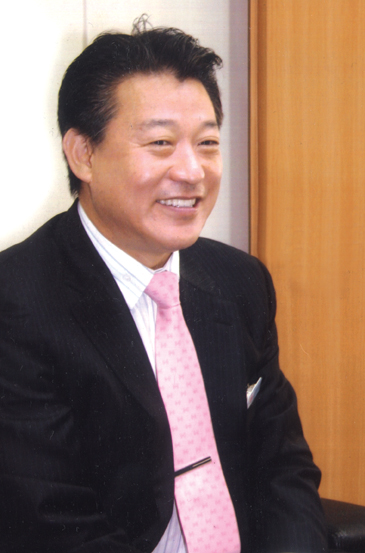 Korean Nuclear Power Industry to Tap Overseas Market
Korean Nuclear Power Industry to Tap Overseas Market
Institutional and administrative support
The Korean nuclear power industry, a driving force behind Korea's economic drives, is technological self-sufficient with the development of the Korean Standard Nuclear Power Plant, also known as Optimized Power Reactor (OPR1000), and the updated Advanced Power Reactor (APR1400), developed on its own technology. Making the most of the technology and experiences the Korean nuclear industry has acquired since the inauguration of Kori Unit #1 about three decades ago, Korea is now pulling out all the stops to turn nuclear power into an export industry.
Byun Jun-yeon, executive vice president for overseas business at Korea Electric Power Corp Korea Electric Power Corp., said, "Exporting nuclear power is not a matter of choice, but an imperative task, and institutional, administrative and national support is badly needed to lay a foundation for helping the nuclear power industry gain a foothold in the overseas markets." He said that exporting nuclear power is a kind of national competition ¡ª the outcome of a comprehensive competition in such areas as technology, price, politics and diplomacy, and raising massive funds, including export financing for developing countries, is needed together with national recognition for exporting. In particular, he suggested recommendations that Korea should expand support and exchanges with nuclear power target countries in such areas as politics, economy and diplomacy; raise Korea Exim Bank's loan ceiling to 7 trillion won; expand and ease operation standards of national funds; give tax credits to investments in nuclear power exports; work out long-term steps to cultivate nuclear power professional manpower; and expand support for educating manpower for nuclear power export target countries.
Byun said ex-President Park Chung Hee played a pivotal role in laying foundation for jump-starting the nuclear power industry, which has come from strength to strength, and the industry, which inaugurated the nation's first nuclear power plant, Kori Unit#1 in 1978, has contributed to the development of advanced technology and the nation's economic miracle ¡ª the national per capita income surging from $800 in the 1978 dedication of the Kori Unit #1 to $20,000 now when 21 nuclear power units are in operation.
Together with Korea, such countries as the Philippines, Turkey, Brazil and Argentina began nuclear power industry projects. Turkey and Argentina have succeeded in introducing two nuclear power units but the Philippines and Turkey have ended up in failure, said Byun, citing that the failing countries lacked the head of state's determination, industrial infrastructure and funds.
Thirty-one countries around the world have 440 nuclear units in operation, accounting for 16 percent of the globe's total electricity demand. Only the United States, Canada, France, Russia, Japan and Korea have now capability to export nuclear power.
Byun said Korea is attaching priority into tapping such nuclear power construction markets as Jordan, Turkey, United Arab Emirates and China. Korea is in talks to sell Jordan a nuclear power plant in the form of a package of canal, desalination and nuclear power projects through a private contract, which would be would be its first such export deal. The nation is also participating in such international bids, including the $25 billion turn-key bid for the construction of four units in United Arab Emirates, he said. nw
Byun Jun-yeon, executive vice president for overseas business at Korea Electric Power Corp.
3Fl, 292-47, Shindang 6-dong, Chung-gu, Seoul, Korea 100-456
Tel : 82-2-2235-6114 / Fax : 82-2-2235-0799